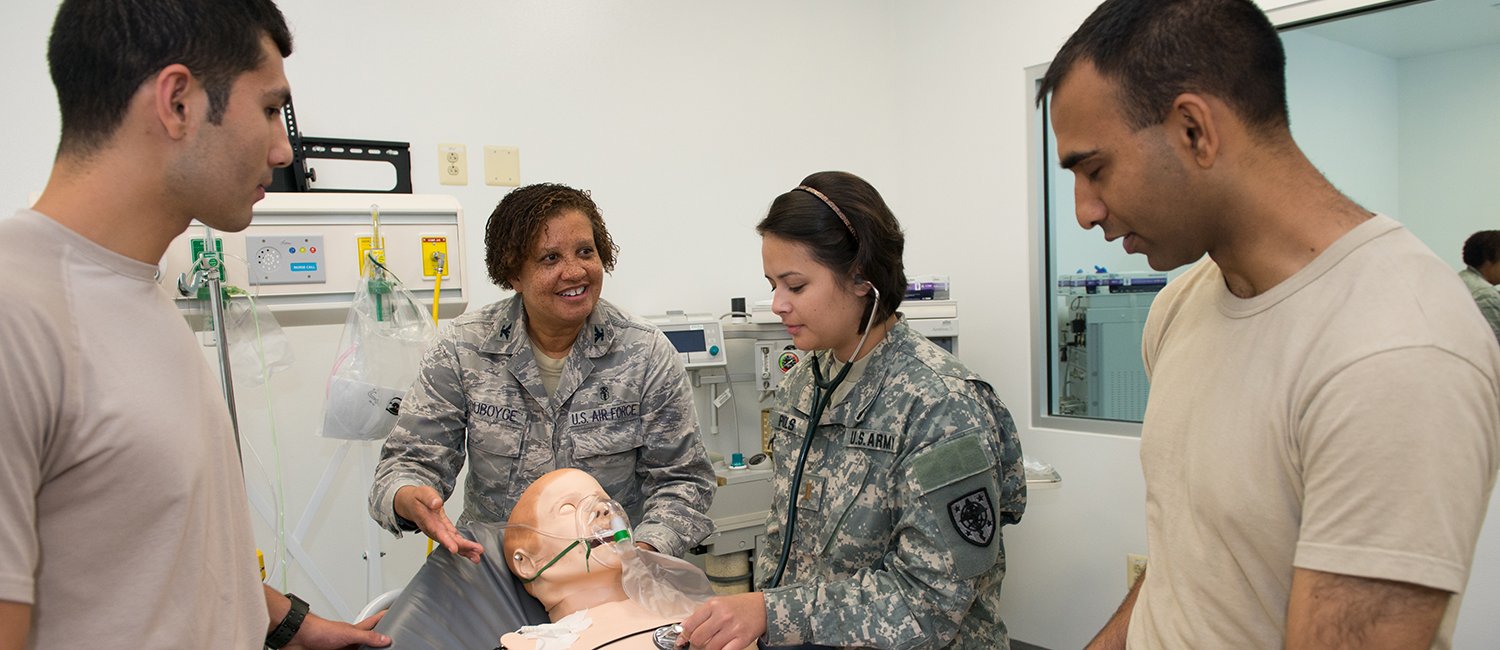
If you are an active-duty member of the military, a reservist, or a veteran who is thinking of applying to medical school, you’re not alone. In 2022, 375 American Medical College Application Service® (AMCAS®) applicants selected “Veteran” for military status on their AMCAS application, and 164 applicants selected “Active Duty.” As a current or former member of the military, there are resources and financial benefits to help you get a medical education.
Can I apply while I’m deployed?
Yes. However, anyone under contractual obligation to the military, including active-duty service members, reservists, and National Guard members, must request permission to apply to medical school. You should contact the personnel command center of your branch of service to get instructions for obtaining approval. This is a crucial step that impacts your ability to attend medical school and should be done at least four months before initiating the AMCAS application.
When applying to schools using the AMCAS application, be sure to list an alternate contact person in the Biographic Information section of your application. That person may contact the AMCAS program for information about your application if you are unable to contact them yourself. If you do not list an alternate contact, the AMCAS program will not be able to release any information to anyone else but you. Be sure to check the policy regarding alternate contacts for any non-AMCAS schools prior to submitting those applications.
How can I highlight my military experience on medical school applications and in my interviews?
Your military service can serve as a distinguishing feature on both your medical school applications and during medical school interviews. The AMCAS application collects information about military experience in two places.
First, in the Biographic Information section, there is a section for Military Service as well as a section on Military Discharge. The Military Service section is where you can indicate whether you are or have served in the U.S. military, what your status will be at the time of enrollment, your date of separation if you select “Veteran,” and whether you’re eligible for any GI Bill benefits. The Military Discharge section allows you to indicate if you have been discharged and whether your discharge was honorable.
Second, the Work and Activities section of the application gives you an area to provide information about your military experience. When talking about your military experience, look for opportunities to explain the roles and responsibilities you assumed. For example, do not just say “I was a platoon sergeant” and assume that those reviewing your application will be familiar with the skills and responsibilities involved. Instead, explain the role you played in sufficient detail and how leading a cohesive team in challenging situations strengthened your leadership, communication, and/or other skills. If you or your unit received citations or awards, list them as appropriate. If there were experiences that helped you decide on a career in medicine, they too could be listed as well as courses or qualifications that highlight your discipline, maturity, and teamwork.
Can I complete prerequisite courses during deployment?
In many cases, medical schools will accept courses completed by active-duty military outside of the country while deployed. You also should contact the medical schools you are interested in attending to discuss your specific circumstances and learn more about their policies.
Can I take the MCAT® exam during deployment?
Yes. The MCAT® exam is offered in many countries outside of the United States. See the MCAT website for the list of countries where the exam is offered. A full list of specific test center locations can be found in the MCAT Registration System (login required).
What benefits am I eligible for to help pay for medical school?
In addition to traditional sources of financial aid, as a current or former military member, you may be eligible to receive funding for medical education expenses through one of several Department of Veterans Affairs (VA) education and training programs.
There are many opportunities for assistance through the VA. You will need to determine which program is best for you. Each program may offer different benefits depending upon your eligibility, the school’s eligibility, and the guidelines of the program.
Although you may be eligible for more than one VA education program, you will need to choose which funding best meets your needs. It is important to understand the program terms in order to make the right decision for you and your educational plan, so you may want to review the VA’s Road Map for Success. Note that your program decision cannot be altered once selected. To help you make your decision, review the VA chart comparing the programs and eligibility terms.
Who can I talk to about veteran’s benefits?
Generally, most college campuses have an office or a staff member who is familiar with veterans' benefits and can offer guidance and information about activating them. There also will be an office or individual at your medical school who is responsible for certifying eligibility for veterans' benefits. They may be located in a VA office, student affairs office, or registrar’s office, depending on the school’s administrative structure. You can also contact your VA Regional Office or the VA Education Service at 1-888-442-4551 (or 1-888-GIBILL-1), and if you are still on active duty, you also can visit the education office on the military base where you are assigned to find out about additional benefits and opportunities.
For additional information, check out the VA education and training webpage. Also, be sure to contact the financial aid office or check the websites at the medical schools you’re considering attending to learn about their VA benefits.